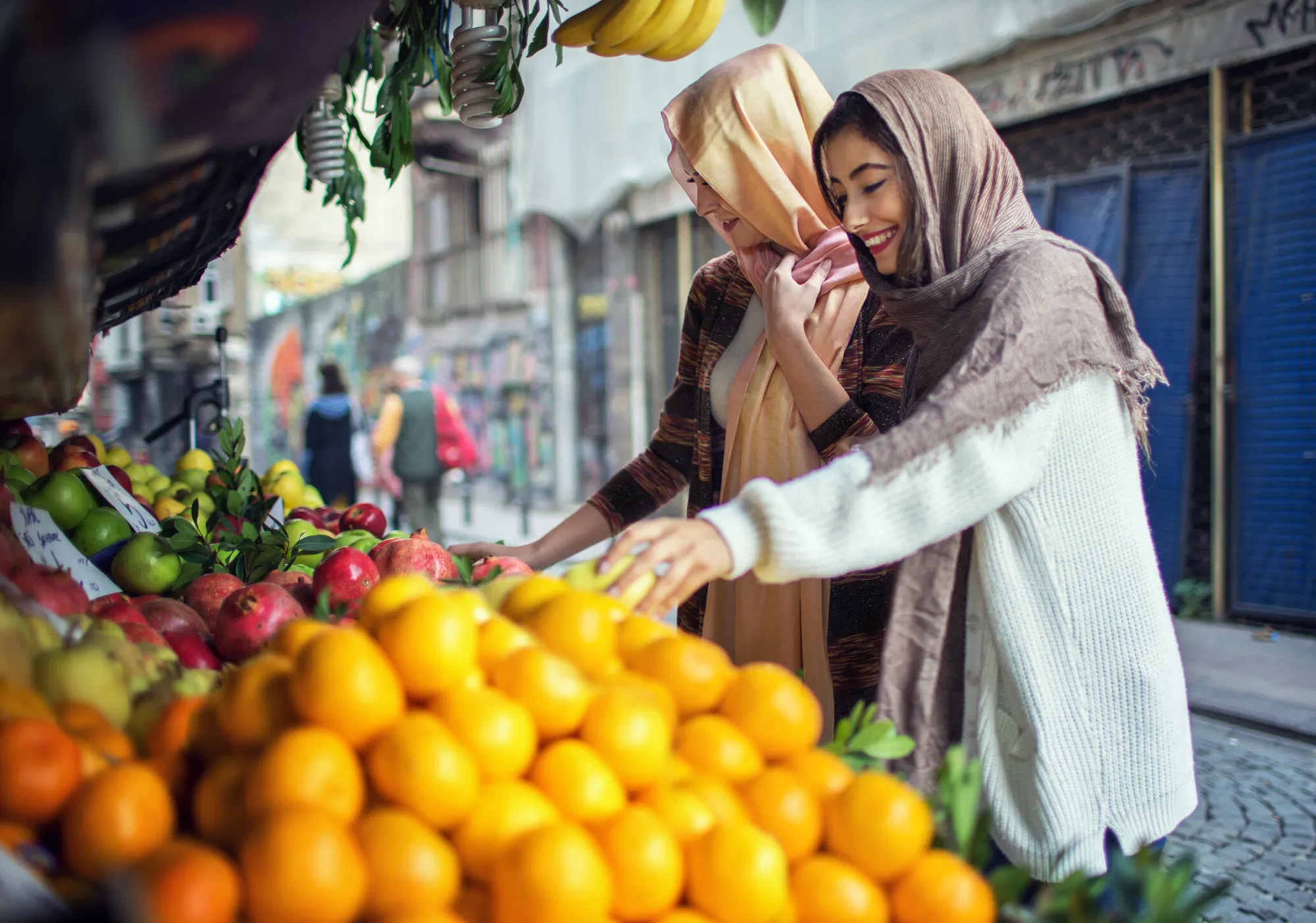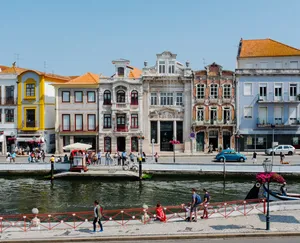Grocery Shopping in Turkey
Most Turks prefer doing their weekly grocery shopping at local bazaars, as they offer the freshest and most comprehensive range of produce — fish, yufka, cheese, olives, spices, and more. Many families
However, this may be hard for working couples and households or those who do not have a close bazaar to their home. Instead, many people go to supermarkets in shopping malls for a one-stop shop.
Shopping for food in Turkish supermarkets is like shopping at any other store in Europe or the U.S.A. Perhaps the most significant difference with the U.S. is that fruit and vegetables are always sold in the front of the market, primarily loose (meaning not packaged) and out in the open to freely pick and choose.
If you are looking for convenience stores, they will be called "bakkals" in Turkey, which sell bread, cigarettes, and a limited range of produce, dried goods, and household products.
Supermarkets in Turkey
Although many other smaller markets are mentioned, the following supermarkets can be found in most towns or cities.
Migros and Carrefour are great for your everyday needs, including baked goods, fish, cleaning items, school supplies, fruit, and vegetables.
If you want to shop for continental meats and cheeses and a more upscale supermarket, check out Macro Center. However, there are only 27 stores in this supermarket in Turkey, so you may not have one in your city.
For more budget-friendly or bargain shopping, the equivalent of Aldi and Lidl, Şok, A101, and Bim are fantastic markets and are available in almost every district.
For cash and carry wholesale, look for the nearest Metro market.
Things You Need to Know About Turkish Supermarkets
Supermarkets are open Monday through Sunday. They are often available from 10 in the morning to 10 o'clock at night. Depending on the time of year and city you live in, they may close earlier or later. In summer, it is not uncommon for markets to stay open until midnight. In bigger cities markets can also open around 8 or 9 o'clock in the morning.
Supermarkets accept cash or cards, but Google Pay or Apple Pay is not accepted.
Self-checkout is not very common, though big cities and significant supermarkets do have dedicated lanes/areas.
Plastic bags are not free anymore, and each one costs 25 kuruş to encourage more people to use reusable bags.
Grocery Delivery Services in Turkey
There are many online grocery services to choose from in Turkey.
The most popular one is Migros Sanal Market. CarrefourSA also has online deliveries.
Hepsiburada and Trendyol market also recently launched grocery deliveries to homes, though the latter is only available in Istanbul for the time being.
Getir and Banabi, the Yemeksepeti subbrand, are also excellent and fast grocery and foodstuffs delivery services.
Buying Groceries from Your Home Country
When you feel homesick and crave fruits and vegetables or other food products from your home country, you may wonder where you can get your hands on those specific items in Turkey.
Although some foods such as parsnips, bok choi, and coriander are hard to come by in Turkey, nowadays, you may be able to find these in specialty food stores or ethnic shops.
As for chocolates and sweets, your best bet will be either Hepsiburada or Trendyol for smaller shops that import such goods. A quick Google search will reveal all your options.
Pork products are also only available in certain independent shops or continental supermarkets in major metropolises or touristic towns.
Ethnic Grocery Stores in Turkey
The best way to discover ethnic food stores is to connect with fellow expats who can share with you their go-to's for a taste of home. Or, if you want to try a specific country's cuisine, bazaars or food stalls could be a better option.
For example, in Istanbul's Bağcılar neighborhood, you can find Japanese food at the Japon Pazarı (Japanese Bazaar) or Asian foods at the Thai Asia Market, or Pakistani delicacies at the Mk Sultan Pakistani Grocery Store. Itsumi Market also sells ingredients for Japanese dishes. If you want Italian-inspired plates, make sure to visit the Eataly market.
If you want to try different spices, dried fruits and nuts or sweets and you are in Istanbul; you should visit the Mısır Çarşısı (Egyptian Spice Bazaar).
Macro Center is also a good place for ethnic foods.
Specialty Stores in Turkey
Şütte Şarküteri, Namlı Gurme, Çıngıloğlu, Berk Çiftlik, Comedus, and Bandırma Çiftliği are just a few of the specialty charcuterie and dairy stores in Turkey.
Your local kasap (butcher) will be the best place for quality meat and offal.
For all things vegan, you should check out Vegan Dükkan or Vegan Bakkal.
Üç Yıldız Şekerlemecisi or Şekerci Cafer Erol are the places to go for candy and Turkish delight, Petek Turşuları for pickles, and Tuğba Kuruyemiş for nuts and dried fruits.
Liquor Stores in Turkey
In Turkey, you can buy alcohol at most supermarkets and markets such as Macro Center, Metro, Migros, and Carrefour. You will not find alcoholic drinks such as wines and beers at Şok, A1010, or Bim as they are considered halal supermarkets.
Small neighborhood markets sell alcohol, non-alcoholic beverages, and cigarettes called "tekel". You have to be 18 to purchase alcohol in Turkey.
Farmers’ Markets in Turkey
These are called bazaars (pazar) in Turkey, where local farmers from the town or other nearby regions sell their fresh produce. Every city or district has its own, set up on different days of the week. They can be open-air markets or be in semi-enclosed spaces.
Some markets also specifically sell organic products, such as the Feriköy Organic Market in Istanbul.
Useful Resources
When it comes to food shopping, the apps or websites of the supermarkets in Turkey will give you enough information about the range of products, delivery costs, etc. Municipality websites are great to check to learn when the village bazaars are set up are good places to ask questions and spark discussions.











Member discussion